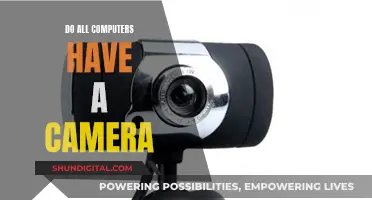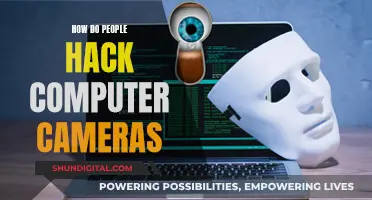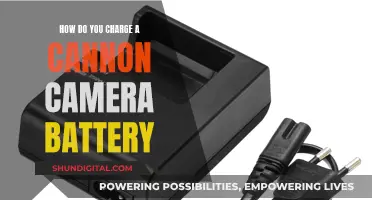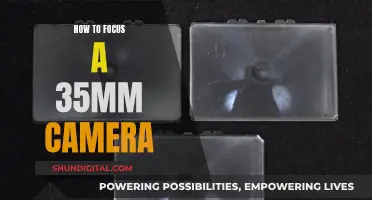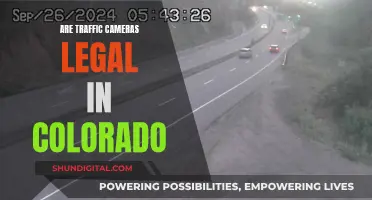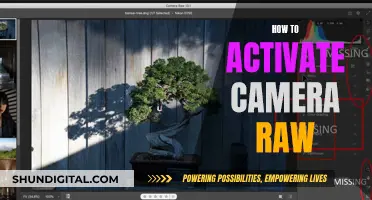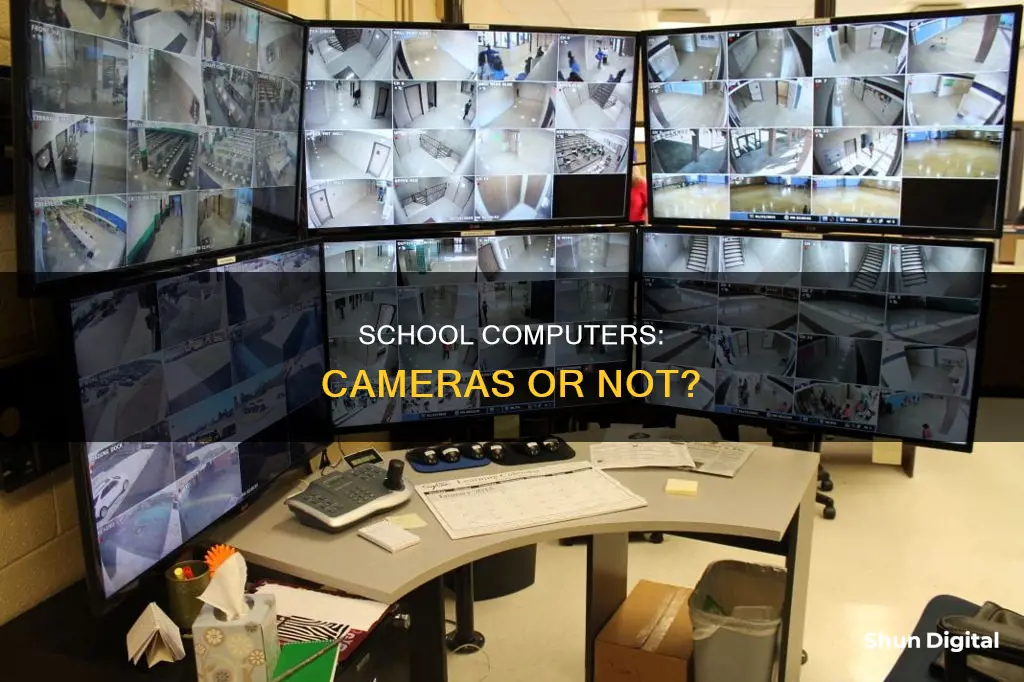
In February 2010, a lawsuit was filed against the Lower Merion School District in suburban Philadelphia, alleging that school officials used webcams to spy on students in their homes. The suit claimed that the district had secretly taken over 66,000 images and screenshots of students and their families by remotely activating webcams embedded in school-issued laptops. This incident, dubbed WebcamGate by the media, sparked outrage among parents and students, with many expressing concerns about privacy and the potential violation of Fourth Amendment rights. The school district eventually admitted to serious mistakes and agreed to pay $610,000 to settle the lawsuit. This case raises important questions about the boundaries of student privacy and the ethical use of technology in educational settings.
| Characteristics | Values |
|---|---|
| Location | Pennsylvania |
| School District | Lower Merion School District |
| Schools | Harriton High School, Lower Merion High School |
| Number of Students | 2,306 |
| Student Grade | High School |
| Devices | Apple MacBook Laptops |
| Software | LANrev's remote activation and tracking software, TheftTrack |
| Privacy Violation | Secretly took more than 66,000 images |
| Lawsuit Filed | February 11, 2010 |
| Lawsuit Outcome | School district agreed to pay $610,000 to settle the lawsuit |
What You'll Learn

Do school computers have cameras for security?
Security cameras in schools are becoming increasingly prevalent, with 91% of public schools employing them in 2019-2020. They are a valuable tool for campus safety and can be used to enhance emergency preparedness, deter crime and bullying, and improve overall security.
The Benefits of Security Cameras in Schools
Security cameras in schools have multiple benefits, including:
- Improving emergency preparedness and response: Security cameras can provide real-time alerts and footage to help schools respond to emergencies more effectively.
- Deterring theft, vandalism, and other crimes: The presence of security cameras can discourage potential criminals and help identify and catch those who do commit crimes.
- Reducing bullying and creating a safer environment: Cameras can help detect and prevent bullying and harassment, providing evidence to school administrators and law enforcement.
- Controlling campus perimeters and building access: Security cameras can help detect and deter unauthorized visitors, improving campus safety.
- Providing peace of mind for parents: Knowing that their children are being monitored can reassure parents about their safety.
Legal and Ethical Considerations
While security cameras in schools are generally legal, there are some important considerations to keep in mind:
- Privacy concerns: The use of security cameras in schools can raise privacy concerns, especially in classrooms. Some argue that constant surveillance may inhibit students' natural behaviour and negatively affect their learning and social skills development.
- Legal restrictions: While it is legal to have security cameras in schools, there are restrictions on their placement. Cameras are typically prohibited in areas where privacy is expected, such as restrooms, locker rooms, and employee lounges.
- Parental consent: In some states, schools may need parental consent to record students for purposes other than safety or education, such as promotional materials.
- Audio recording restrictions: Recording conversations without consent is illegal in the US. If cameras are capable of recording audio, steps must be taken to ensure this function is disabled.
Best Practices for School Security Cameras
To ensure the effective and responsible use of security cameras in schools, several best practices should be followed:
- Visible placement: Cameras should be installed in locations where they are plainly visible to avoid concerns about hidden surveillance.
- Signage: While signage is generally not required, it may be included to deter bad behaviour and make students, staff, and visitors aware of the surveillance.
- Notification and consent: Schools should notify staff, students, and parents about the presence of cameras and obtain consent where necessary.
- Clear policies: Schools should have comprehensive policies regarding the use, access, storage, and sharing of CCTV footage to address privacy concerns and legal compliance.
- Strict access controls: Access to CCTV footage should be limited to authorized personnel only to prevent unauthorized viewing and ensure the footage is used for its intended purpose.
In conclusion, security cameras in schools can be a valuable tool for enhancing campus safety and security. However, it is important for schools to carefully consider the legal and ethical implications and establish clear policies to address privacy concerns and ensure responsible use.
Unlocking Camera Mode in Smash Melee: A Step-by-Step Guide
You may want to see also

Can school staff remotely activate webcams?
In February 2010, a lawsuit was filed against the Lower Merion School District in Pennsylvania, alleging that school staff had remotely activated the webcam on a student's school-issued laptop to observe him at home without his knowledge. The lawsuit claimed that the school district had violated the student's privacy rights and the U.S. Constitution's Fourth Amendment right to privacy.
In response to the lawsuit, the school district admitted that they had remotely activated webcams on school-issued laptops but maintained that this feature was only used to locate lost, stolen, or missing laptops. The district's spokesperson, Doug Young, stated that they had remotely activated 42 webcams over the past 14 months to find missing student laptops out of the 2,300 laptops issued to students, and they had recovered 28 of them.
The lawsuit brought up concerns about the potential conflict between technology and privacy, with many students and parents alarmed by the school district's actions. It also sparked debates about the necessity of surveillance on school-issued computers to ensure they are not used inappropriately.
While the specific details of the case may vary, it is clear that the school staff in this instance did have the capability and authority to remotely activate webcams on school-issued laptops. This incident highlights the delicate balance between technology, security, and privacy in educational settings and the need for clear policies and guidelines to protect students' rights.
School Bus Camera Tickets: Insurance Impact?
You may want to see also

Do students know about the cameras?
The use of security cameras in schools is a highly debated topic. While some argue that they enhance campus safety, others believe that they invade privacy. Schools should evaluate the pros and cons of using security cameras before taking action.
In the case of Robbins v. Lower Merion School District, it was revealed that the school district had secretly taken over 66,000 images of students in their homes without their knowledge or consent. The district had activated the webcams embedded in school-issued laptops, capturing photos and videos of students in their bedrooms and bathrooms. This incident caused an uproar among students and parents, with many feeling disgusted and violated.
To address this issue, the school district agreed to pay $610,000 to settle the lawsuits against them. They also deactivated the remote activation feature on the laptops and issued an apology, acknowledging that their actions were “misguided” and a “big, big horrible error in judgment."
While the settlement provided some resolution, the incident left a lasting impact on the students. One student, Savanna Williams, expressed her loss of trust in the school district and her desire for reassurance that she could feel safe in her own home. She stated that she no longer felt comfortable changing with her laptop open and wanted the school to implement measures to protect her privacy.
This example highlights the importance of considering the potential consequences of using security cameras in schools. While they can enhance safety, improper use or lack of transparency can lead to negative sentiments and privacy concerns. It is crucial for schools to strike a balance between safety and privacy, ensuring that students' rights are respected while also maintaining a secure environment.
To achieve this balance, schools should implement clear policies regarding the use of security cameras and ensure that students and parents are informed. By providing proper notification and obtaining consent, schools can help alleviate privacy concerns and build trust with their students and the wider community.
Focusing Your Camera in After Effects: A Step-by-Step Guide
You may want to see also

Do schools need consent to activate cameras?
While it is not illegal to have cameras in schools, there are legal and ethical considerations to keep in mind when installing and using them. The use of security cameras in schools is governed by regulations that vary from state to state in the US. Schools must navigate these regulations to balance security measures with respecting privacy rights.
In general, US laws allow the use of video cameras to monitor areas where privacy is not a reasonable expectation, such as hallways, outdoor courtyards, and classrooms. However, electronic surveillance in areas where privacy can be reasonably expected, such as private offices, bathrooms, and locker rooms, is deemed improper.
Some states, such as New Hampshire, Maine, Kansas, South Dakota, and Delaware, have stricter laws regarding hidden surveillance cameras. In these states, consent is typically required for the use of any hidden cameras. Even in states without such strict laws, it is generally recommended to install cameras in locations where they are plainly visible to comply with state laws and deter misconduct.
While schools are usually permitted to record students for safety and educational purposes without obtaining parental permission, certain states, like Texas, may require parental consent if the recordings are for purposes other than education or safety. It is crucial for schools to make parents aware of their surveillance policies and to request signed consent forms when necessary.
To ensure the lawful and ethical installation and use of security cameras, schools should follow these guidelines:
- Respect privacy boundaries by installing cameras only in areas without a reasonable expectation of privacy.
- Opt for visible camera placement to comply with state laws and deter misconduct.
- Educate stakeholders, including parents and staff, about the surveillance policy, emphasising safety and educational purposes.
- Implement measures to secure recorded data and ensure it is used only for its intended purposes.
In conclusion, while it is generally not illegal to have cameras in schools, schools must carefully navigate state-specific regulations and consider ethical guidelines to balance security and privacy concerns when installing and using security cameras.
Action Camera Batteries: How Long Do They Last?
You may want to see also

What are the legal implications of schools using webcams to monitor students?
The legality of schools using webcams to monitor students is a complex issue that has been the subject of debate and litigation in recent years. While there may be benefits to using webcams for student monitoring, there are also significant legal implications that must be considered.
In the United States, the legality of school security cameras varies from state to state. Some states have stricter laws regarding hidden surveillance cameras, while others have laws that specifically allow for cameras in classrooms. However, regardless of the state, there are general surveillance regulations and best practices that must be followed. Schools must respect the "reasonable expectations of privacy" of students, teachers, and staff. This means that video surveillance is permitted in areas where there is no expectation of privacy, such as common areas like hallways, cafeterias, and classrooms. On the other hand, it is illegal to install security cameras in areas where privacy is expected, such as restrooms, locker rooms, and private offices.
To ensure legality, schools should implement several measures. Firstly, it is recommended to install security cameras in locations where they are plainly visible to avoid any allegations of hidden surveillance. Secondly, while signage disclosing the use of cameras is not legally required in areas without a reasonable expectation of privacy, it may still be a good idea to include signage to deter bad behavior. Thirdly, schools should seek parental consent before recording students for purposes other than safety and education, such as for promotional materials. By following these guidelines, schools can ensure that their use of video surveillance remains within legal boundaries.
Despite these guidelines, the use of webcams for student monitoring has raised concerns among students, parents, and legal experts. One of the main concerns is the invasion of privacy, as webcams can capture images and videos of students in their homes or private spaces. Additionally, there is a risk of misuse or abuse of power by school authorities, which could lead to further privacy violations. Furthermore, the use of AI-powered monitoring software has been criticized for disproportionately targeting disadvantaged, minority, and LGBTQ+ youth. Another concern is the involvement of law enforcement in student monitoring. In some cases, schools have referred alerts from monitoring software to law enforcement officers, who may not be adequately trained to handle youth mental health crises or other sensitive issues.
The legal implications of schools using webcams to monitor students can be far-reaching and complex. While video surveillance may be permitted in certain areas of a school, it is crucial to respect the privacy rights of students and staff. Schools must carefully consider the benefits of webcam monitoring against the potential risks to privacy and ensure that any surveillance policies are implemented with caution and within the scope of legality.
Enhancing Wireless Surveillance Camera Range: Tips for Better Reach
You may want to see also
Frequently asked questions
Yes, school-issued computers often have built-in cameras that can be used for remote learning or online classes. However, there have been concerns and controversies around schools allegedly using these cameras to spy on students, even when they are at home.
Yes. In a widely publicised case, a school district in Philadelphia was found to have secretly activated the webcams of school-issued laptops to monitor students' activities at home.
Schools may use cameras for security reasons, such as tracking lost or stolen laptops. However, it is important to note that the use of these cameras should be communicated transparently to students and parents, and any misuse or invasion of privacy is a serious concern.
The use of school computers with cameras to spy on students raises serious privacy and ethical concerns. It violates the trust between the school and the students, and can potentially capture sensitive or embarrassing images of students and their families.
Schools should ensure that any surveillance capabilities are clearly communicated to students and parents, with appropriate policies and guidelines in place to protect students' privacy. Students can also take measures such as covering their webcams when not in use or requesting explicit guidelines from the school on when and how the cameras will be used.


